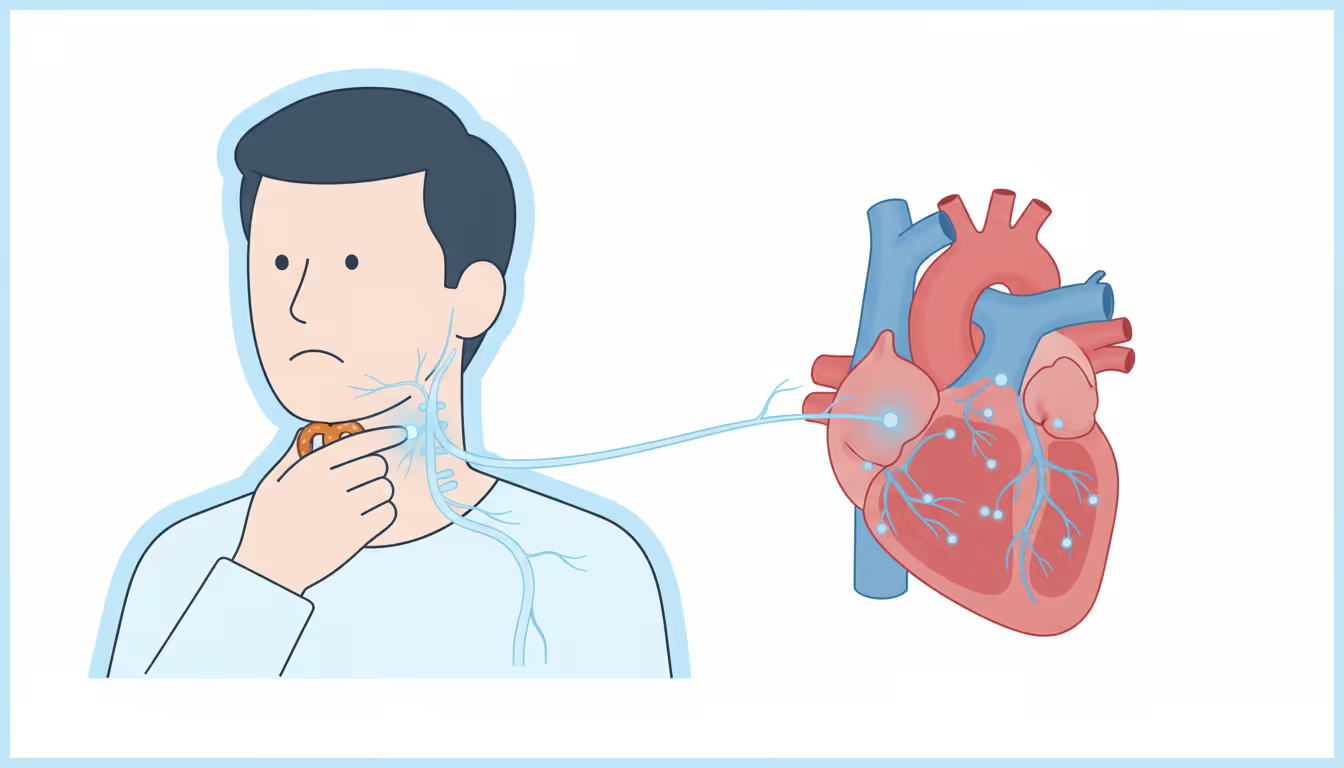
Sinus bradycardia is characterized by a steady but unusually slow heartbeat, typically 50 beats per minute or fewer while at rest. This condition can be caused by various factors, including high levels of physical fitness, the use of certain medications, and some medical conditions. The term "sinus" refers to the sinoatrial node, the heart's natural pacemaker that establishes a normal and consistent heartbeat. "Bradycardia" indicates a heart rate that is slower than average. In some cases, sinus bradycardia can lead to a further reduction in heart rate, particularly when the vagus nerve sends signals that cause a sudden decrease. Situations such as choking or gagging can trigger this reaction, known as the vasovagal reflex. An example of this occurred with former US President George W. Bush, who experienced a fainting episode due to a vasovagal response after choking on a pretzel.




